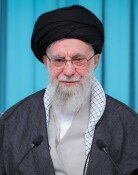Return of Regionalism in Politics?
Return of Regionalism in Politics?
Posted March. 06, 2010 09:24,
Signs everywhere show politicians fomenting regional antagonism even before the campaigns for the June 2 local elections officially start. The highly disputed revision of the plan to build an administrative city in South Chungcheong Province is one of the hottest issues in the upcoming elections, so fears are rising that regionalism will likely plague the polls.
A case in point is certain reactions to comments on Daegu and North Gyeongsang Province by a presidential official as reported by a newspaper. The worry is that things will turn more outrageous when the campaigns get heated. The presidential office denies the report, so whether the comments are true or what they truly meant is unclear. Of course, the official did the wrong thing by causing the misunderstanding as a public figure. It is unreasonable, however, for certain regions or politicians to politicize the comments by saying they disrespected Daegu-North Gyeongsang residents or raising suspicion over the selection of the site for a high-tech medical complex. These actions must be stopped to prevent regional antagonism in the election campaign period.
Rumors also say the National Tax Services audits are focused on businesses controlled by people from the Jeolla provinces. The tax office had to publicly explain that it selects businesses subject to audit in balanced consideration of corporate sizes and regions. News has it that in the Busan-South Gyeongsang Province area, some say the administration has excluded figures from that region from key posts. Claims of giving favors to or neglecting a certain region are made in every election season and are part of politicians strategies to fuel regionalism for votes.
Just like a black hole, regionalism swallows all other issues, including policy, personality and vision. There is only the friend-or-foe mentality based on regionalism. In the 1980s and 90s, regional antagonism was so severe that a presidential candidate from a certain region could not even go on a campaign swing in a rival region. Regionalism showed signs of abating with the ebb of the three Kims era, but returned in the 2006 local elections and 2008 general elections.
Regional antagonism and regionalism not also distort voter sentiment, but is a contentious matter that ignites national friction. To achieve national integration and advancement and the establishment of the proper election culture, regionalism must be uprooted from this country. All voters should serve as watchmen for those who promote regionalism and regional antagonism. If a politician or party attempts to win votes through regionalism, voters should force them out of politics.







